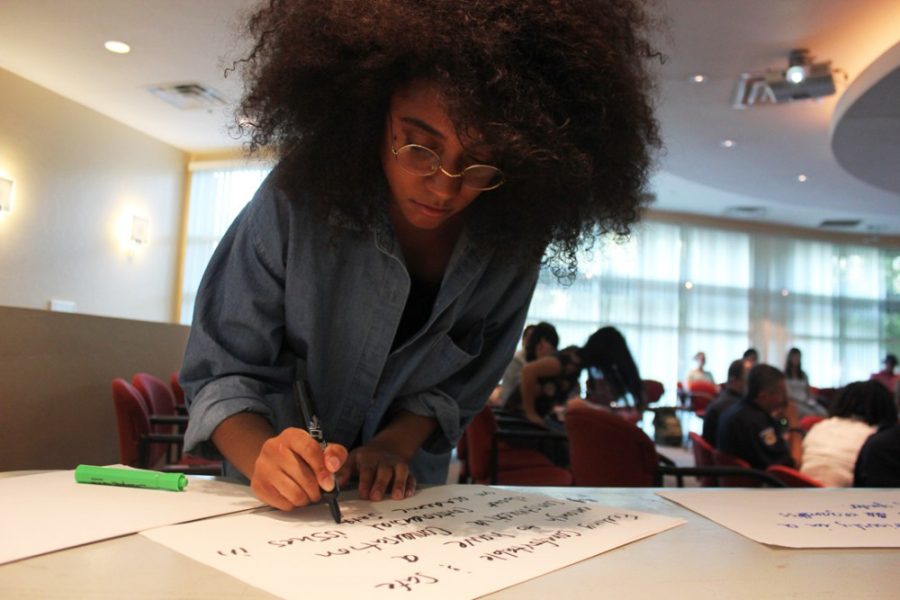The Black Student Union presented the Know Your Rights forum, a dialogue on law enforcement and racial profiling, on Wednesday evening in the Union Kiva room of the Student Union Memorial Center.
Kevyn Butler, president of the BSU, and Trinity Goss, vice president of the BSU, spoke about why they thought it was necessary for everyone to come together to start a dialogue about the relation between black students and law enforcement, including potential problems such as racial profiling and hate crimes.
Know Your Rights utilized a video isolating the last words of victims of police brutality and racially politicized killings. The video included clips from recent infamous incidents, such as audio of Trayvon Martin’s last words.
Kendal Washington White, dean of students, said she has two teenage sons and that the deaths and violence against young people because of race hits home.
“Why do they get killed for just hanging out?” she asked.
After the video presentation, Moore invited the audience to write poems about their experiences with racial profiling. Hers was about her realization that profiling is still practiced after hearing about her father’s experiences.
“Went to change tires,” she said. “Suspected. Arrested.”
Brian Seastone, the University of Arizona Police Department chief, also read a poem he wrote, titled, “How Can I Help You?”
“I want to make people feel safe on campus and around other people,” Seastone said, “because we are here to be human beings, so treat them with respect.”
Seastone has made a point to create four core values for his department to abide by: professionalism, integrity, commitment and accountability. He said that any UAPD officer who did not meet these core values in an interaction with a student should be reported to the station.
The floor was then opened up to the audience for a Q&A session with UAPD officers. Lederius Franklin, a junior studying history and philosophy, was one of 50 students and faculty members who went to ask a question and hear how UAPD responded.
“I am here because I am curious to see people’s answers to the questions presented,” Franklin said.
Later, Seastone was asked by a student how UAPD responds to hate crimes.
“We get state or federal agencies involved depending on the decision we make about the severity of the issue,” Seastone said. “Usually, they are misunderstandings, though. We respond based on people’s behaviors when we arrive on the scene.”
Another student asked, “How do you talk about racism in the police department? Because our ideas are all shaped by media and social surroundings, so how do you fight through them?”
White commented on UAPD’s relationship with students.
“Many think police only talk to themselves at the station,” White said, “but the campus police are very involved in the community with our students.”
_______________
Follow Courtney Rice on Twitter @DailyWildcat
EDITOR’S NOTE:
Original: After the video presentation, White invited the audience to write poems about their experiences with racial profiling. Hers was about her realization that profiling is still practiced after hearing about her father’s experiences.
This section was misattributed, we made the change and now the story reads correctly.








